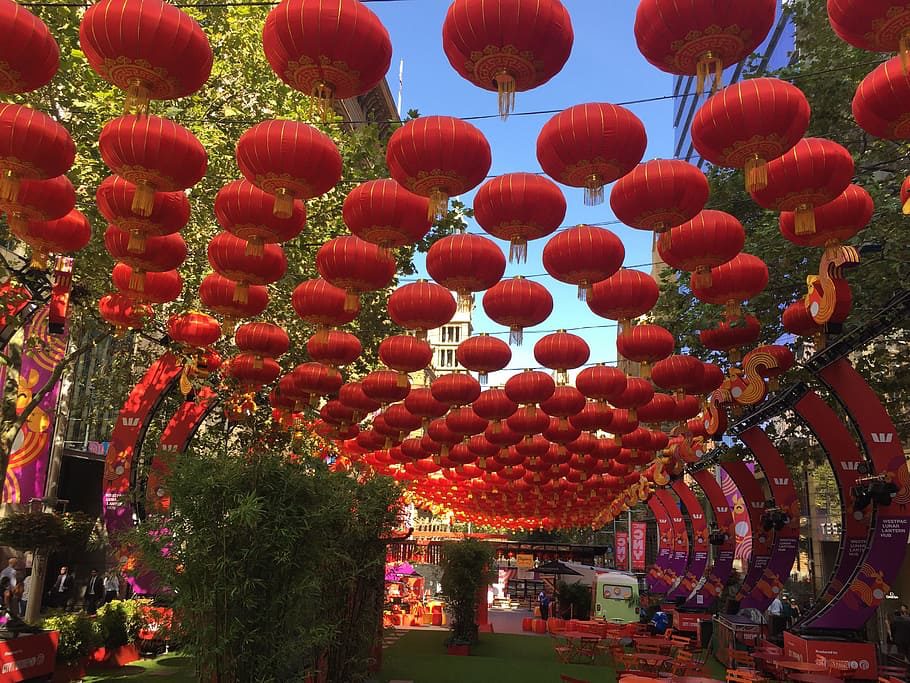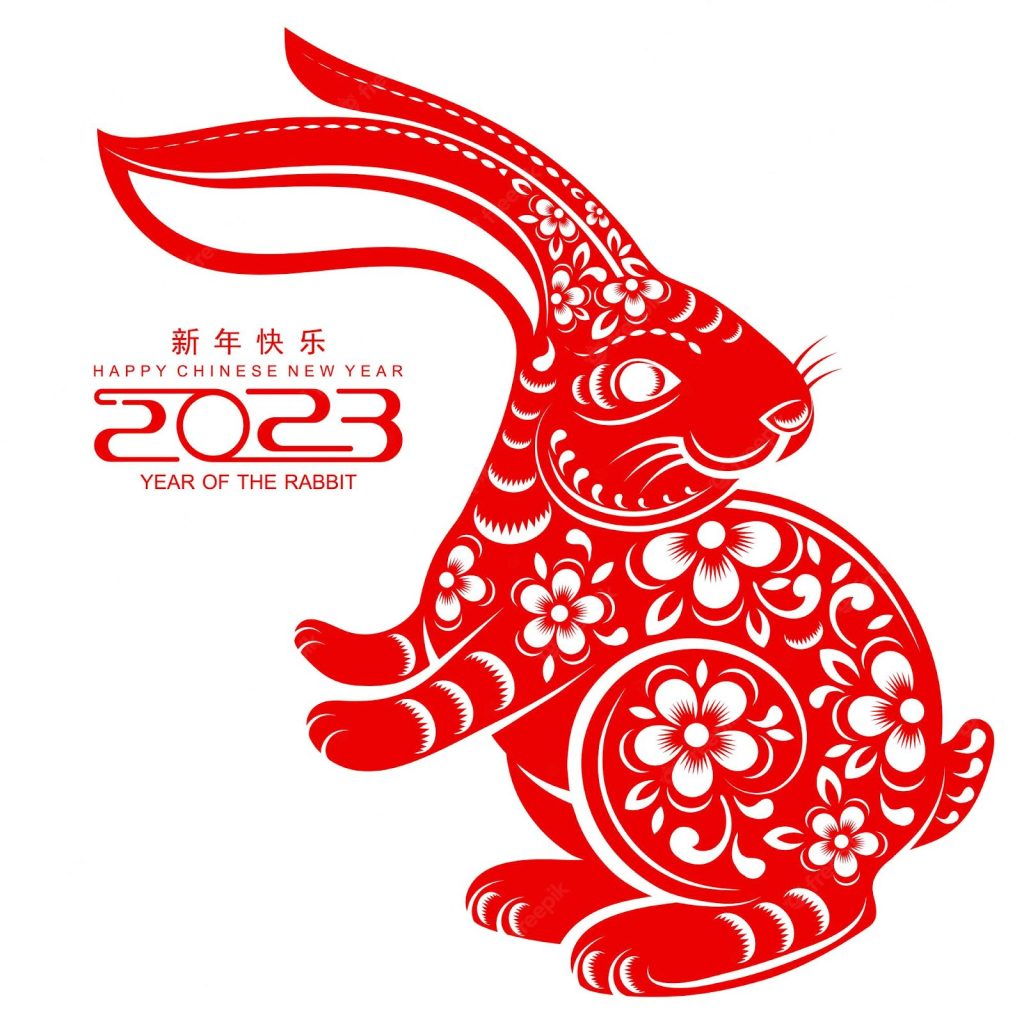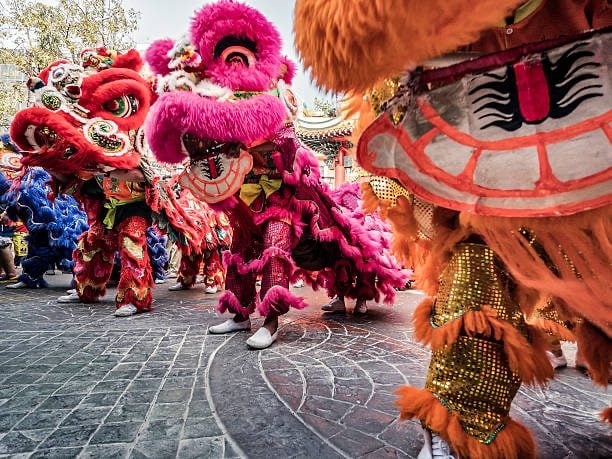BLOGS
Lunar New Year: Everything To Know
Chinese New Year is a well-known holiday that is observed even beyond China. It is considered to be the most significant special event in China throughout the entire year, bringing prosperity and happiness to families. Discover more about a variety of ways Chinese New Year is honored, from traditional stories and customs to food, drink, and superstitions.
The Spring Festival, or Chnjié in Mandarin, is China’s Lunar New Year. The weather is still chilly, but the festival signifies the end of the coldest days. People look forward to spring and all it brings: planting and harvesting, new beginnings, and fresh starts.
The Lunar New Year is regarded as one of the most important celebrations in East and Southeast Asian cultures, including those of Vietnam, Korea, and China! This festival began as a time to feast and glory household, heavenly deities, and ancestors. It is a 15-day annual festival celebrated in China and Chinese communities all over the globe that starts with the new moon, which takes place between January 21 and February 20 on Western calendars. This special event continues until the following full moon.

When will be the 2023 Spring Festival?
Unlike with the worldwide New Year, which occurs on January 1st, Chinese New Year is never fixed. The Chinese New Year festival will be held on January 22, 2023. In accordance with the Chinese zodiac, it corresponds to the Year of the Rabbit, and a different animal indicates each year. People born in the Years of the Rabbit, such as 1939, 1951, 1963, 1975, 1987, 1999, and 2011, will have their Zodiac Year of Birth experience (Ben Ming Nian).
Chinese New Year, 2023- Year of the Rabbit
The year 2023 is the Water Rabbit, beginning on January 22nd, 2023 (Chinese New Year) and going to end on February 9th, 2024 (Chinese New Year’s Eve). In Chinese culture, the Rabbit is a representation of longevity, harmony, and prosperity. 2023 is expected to be a hopeful year.
In the Chinese zodiac, the Rabbit is the fourth animal symbol. They are most likely compatible with the zodiac signs Goat, Dog, and Pig. Rabbits are foreseen to be delicate, silent, elegant, and alert, in addition to being quick, particularly skilled, compassionate, patient, and also very responsible, sometimes hesitant to reveal their imaginations to other people and having a tendency to escape reality, but also always devout to those around them, according to Chinese astrology.

The Lunar Calendar’s 12 Zodiac Animals
In the Lunar calendar, each year is symbolized by one of the 12 zodiac animals that are associated with the cycle of 12 signs along the evident route taken by the sun through the universe.
Here are the 12 Zodiac Animals:
- Rat
- Ox
- Tiger
- Rabbit
- Dragon
- Snake
- Horse
- Sheep
- Monkey
- Rooster
- Dog
- Pig
In particular, concerning the animals, the traditional lunar calendar includes five aspects: earth, water, fire, wood, and metal. Each year is linked to a distinct animal that matches up to a different element.
What is the Significance of the Chinese New Year?
The New Year’s Eve festivities are primarily focused on letting go of the negativity as well as the old and embracing the new and the positivity. It is a moment to show respect to forefathers, expunge negative energies, and worship for a bountiful harvest. It is commemorated for several reasons. Initially, legend claims that the Chinese New Year arose from an ancient battle against the Nian (/nyen/), which also sounds similar to ‘year’ in Chinese), a frightening creature that appeared each Lunar New Year’s Eve to devour individuals and livestock. Folks showcased red paper, burned bamboo, lit candles, and dressed in red to frighten away the monster. These customs have been carried on to the present day. Furthermore, it commemorates the spring season’s arrival and the start of a new year on the Chinese lunar calendar.
Nowadays, it is also observed by Chinese communities even outside China. Certain rich and colorful activities include lion dance, dragon dance, temple fairs, flower market shopping, and so on. Because the New Year is a time for family reunions, those who live or work far away will return home before the holiday.

The Traditions of the Lunar New Year
An inherited, established, or customary pattern of thought, action, or behavior is a tradition (such as a religious practice or a social custom). Traditions are concepts, and values passed down from generation to generation. They are principles rather than rules. Each household within a culture may have its distinct traditions while sharing others. Traditions or customs are also found in eastern and southeast Asian cultures, particularly during the Chinese New Year, such as:
1) Cleaning and Embellishing Dwellings with Red Decorations
The festival’s principal color is red, which would be thought of as an advantageous color for the Lunar New Year, defining wealth as well as energy — both of which shield off evil forces and negativity. Red lanterns adorn the pavements, and red couplets and New Year’s images are placed on doors. The Chinese believe that red provides better luck, and flourishing, and protects against evil, so most New Year ornaments are red. Upside-down fu, dui lian, lanterns, year paint, papercutting, door gods, and other popular New Year decorative items
2) Offering Ancestors Sacrifices
Respecting the dead is a Chinese New Year cultural practice that is strictly adhered to. On the day before Chinese New Year’s Day, numerous Chinese people visit ancestral burial sites and make offerings to forefathers before the reunion dinner. Ultimate sacrifice on New Year’s Eve and throughout festivities, is a way of repaying family. Households, for instance, will honor their ancestors before the reunion dinner, letting them eat first.

3) Observing Lion and Dragon Dances
During the Lunar New Year, lion and dragon dance routines are popular in China and in Chinatowns in many Western countries. They have always been executed to deliver prosperity and good fortune for the coming year or event. The lion dance is among the most valuable Chinese New Year traditions.
The Delectable Chinese Delights During Chinese New Year
Food is an essential component of Chinese New Year celebrations. During 16-day festive seasons, blessed meals are served, particularly at the New Year’s Eve family gathering dinner. Food is offered to send descendants and other beings from the other world closer to oneself. The following are the most popular Chinese foods at the Spring Festival and its symbolism:
Chinese Food Symbolism
| Chinese Food |
Symbolism |
| Fish |
A Significantly Raise of Prosperity |
| Chinese Dumplings |
Wealth |
| Fruit |
Fullness And Wellness |
| Chinese New Year Cake |
A Better Income Or Position |
| Noodles |
Happiness And Longevity |
The Lunar New Year Superstitions and Taboos
Chinese individuals have traditionally believed that the beginning of a new year influences the entire year, so the Spring Festival in China is a period of superstitious beliefs. A superstition is a broadly believed but unsupportable belief in supernatural causation resulting in specific outcomes of an action or event, or practice based on such a belief. The following are some folk taboos observed during the Spring Festival. Some of these are present throughout the celebration, whereas others are only present on one day:
- On New Year’s Eve, avoid eating fish heads or tails. Since it shares the same pronunciation in Chinese as abundance, leaving some fish on New Year’s Eve until the next morning means you will constantly have sufficient wealth to spend for the following year. Similarly, your grain jar must not be empty on New Year’s Eve to guarantee you do not go hungry the following year.
- You must not wash your clothes or hair or bathe on the first day of the lunar year. Given that the first and second days of the lunar year are the birthday of the “Water God,” it is forbidden to use water to show some respect for the Water God.
- The Kitchen God returns to one’s home on the fourth day of the lunar year. Nobody is supposed to be out on that same day. They should remain at home and prepare sacrifices to welcome the Kitchen God’s return.
- People are not permitted to take out the garbage or sweep the floors until the fifth day of the New Year. On this particular day, the trash and dust turn into “representations of poverty”, so sweeping the house implies forcibly removing “poverty”.
- Others are: If you speak unfortunate utterances like “death,” “illness,” or “loss” during the festival, they might very well follow you for the rest of the year.
Chinese New Year Greetings — An Absolute Must-Know!
When individuals meet up with friends, family members, colleagues, and sometimes even random people during the festive season, they usually say “Xīnnián hǎo” (新年好), literally meaning ‘New Year Goodness,’ or “Xīnnián kuàilè” (新年快乐), meaning ‘Happy Chinese New Year.’
Cantonese kung hei fat choi, simply ‘happiness and prosperity,’ is perhaps one of the most well-known traditional Chinese New Year salutations. That’s gongxi facai in Mandarin. Even in countries other than China, kung hei fat choi is generally used.
Suggested Read: Unique Holiday Activity To Try In Your Portofino Home
Suggested Read: Ghost Month: What You Need To Know
Suggested Read: Santa Rosa As The City Of The South
Suggested Read: New Year’s Eve: Things To Prepare
Suggested Read: Best Architectural Home Designs
















